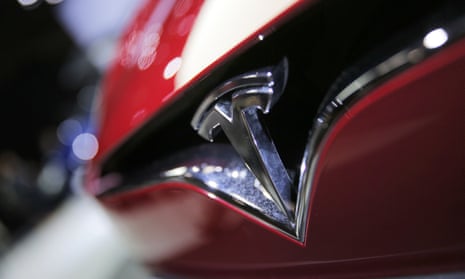
Tesla wins first major US autopilot lawsuit over 2019 fatal crash
The case was filed in California by two passengers who survived a 2019 crash, in which the driver died
Tesla on Tuesday won the first US trial over allegations that its autopilot driver assistance feature led to a death, a major victory for the automaker as it faces several similar lawsuits across the country.
The case, in a California state court, was filed by two passengers in a 2019 crash who accused the company of knowing the autopilot feature was defective when it sold the car. Tesla argued that human error caused the crash.
The 12-member jury on Tuesday announced they had found the vehicle did not have a manufacturing defect. The verdict came on the fourth day of deliberations, and the vote was 9-3.
Representatives for Tesla and the plaintiffs did not immediately comment on the verdict.
The civil lawsuit alleged the autopilot system caused owner Micah Lee’s Model 3 to suddenly veer off a highway east of Los Angeles at 65mph (105 km/h), strike a palm tree and burst into flames, all in the span of seconds.
The 2019 crash killed Lee and seriously injured his two passengers, including a then 8-year-old boy who was disemboweled, court documents show. The lawsuit, filed against Tesla by the passengers, accuses the company of knowing that the autopilot feature and other safety systems were defective when it sold the car.
Tesla denied liability, saying Lee consumed alcohol before getting behind the wheel. The electric-vehicle maker also claims it was unclear whether the autopilot feature was engaged at the time of the crash.
Tesla has been testing and rolling out its autopilot and more advanced full self-driving (FSD) system, which its chief executive, Elon Musk, has touted as crucial to his company’s future but has drawn regulatory and legal scrutiny.
Tesla won an earlier trial in Los Angeles in April with a strategy of saying that it tells drivers that its technology requires human monitoring, despite the “autopilot” and “full self-driving” names.
That case was about an accident where a model S swerved into the curb and injured its driver, and jurors told Reuters after the verdict that they believed Tesla warned drivers about its system and driver distraction was to blame.